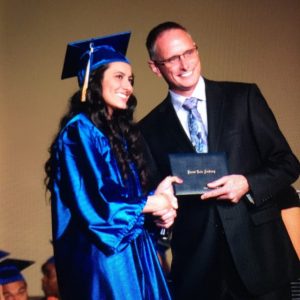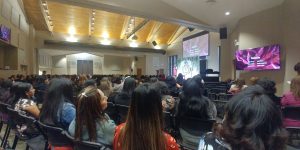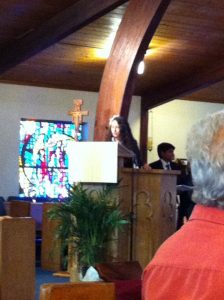 In the second-grade, I was in a multi-grade class with a teacher who was also the principal. It was tough for me to comprehend what she was teaching half of the time due to the distractions.
In the second-grade, I was in a multi-grade class with a teacher who was also the principal. It was tough for me to comprehend what she was teaching half of the time due to the distractions.
Because I had difficulty learning in such an environment, my parents decided to pull me from that Adventist school. So, starting in fourth-grade and up until eighth-grade, I was enrolled in an Episcopalian School.
It gifted me the experience of going to school with people outside of my denomination and outside of my religion. Each and every student in my class was different. We all had a story, and we all had different beliefs, but we somehow put it all aside and became friends.

I was able to learn about everyone’s culture and religion in a wholesome way. In eighth grade, each student of a different religion/denomination presented to the class their beliefs. Then we’d research as a class different aspects of those religions and visit their place of worship.
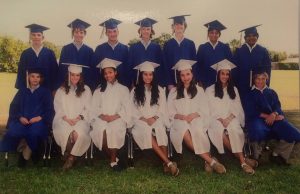
Upon graduating from Saint Joseph’s, I went to a Baptist high school in my area. My two years at Berean Christian School were tough, mainly because for the first time in my life my beliefs were challenged.
If I said I went to church on the Sabbath, they would mock me and tell me how that made no sense. It was exhausting trying to explain it to so many people and just hearing people judge or question me.
Going to school outside the “Adventist Bubble” has many advantages and disadvantages. I was able to learn about my friends’ different religions. I was exposed to things while at Saint Josephs that I would have never learned at an Adventist academy. At Berean, I learned how beautiful it is to praise Jesus through praise and worship. I wholeheartedly believe that being at Saint Joe’s and Berean made me appreciate Adventism even more.
When my family was transferred to Orlando, I completed my last two years of high school at Forest Lake Academy. Being able to go to school functions that didn’t conflict with the Sabbath was a beautiful and refreshing feeling. It felt great not having to deal with the pressures of the social norms from my previous high school. Everyone understood me, and I understood them.
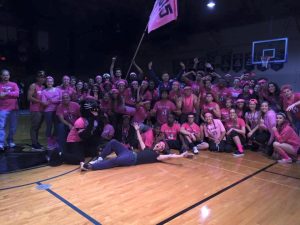
I believe it is important for me to do the same for my children. Keeping me in a private Christian school was very beneficial to me, despite it not being Adventist.
In the end, I am thankful for the path my parents and God put me on- even if it meant leaving the “Adventist Bubble.”
